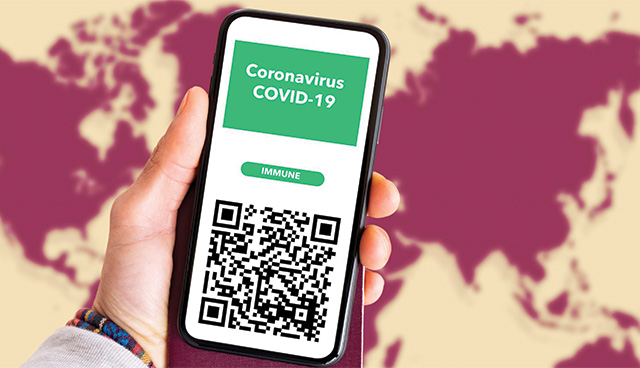European Digital Green Certificate on track for summer 2021

In April 2021, EU ambassadors agreed a mandate for negotiations with the European Parliament on the proposal for a Digital Green Certificate, also known as a Covid passport, as the EU looks to digitally “facilitate the safe free movement of citizens within the EU during the Covid-19 pandemic”.
The legal framework of the Digital Green Certificate is made up of two legislative proposals, the first concerning EU citizens and their families and the second concerning third-country nationals legally residing in an EU member state. Going by these proposals, it will be possible to use the certificate across all EU member states, Iceland, Liechtenstein, Norway, and Switzerland.
After the European Commission presented the proposals for regulations in March, EU ambassadors approved the establishment and mandate of an ad-hoc working party in order to accelerate the matter as a priority. With the negotiation principles now agreed after several working party meetings, the European Parliament is expected to adopt its position by the end of April, with interinstitutional negotiations beginning soon after. Member states have agreed that the framework should be ready for summer 2021.
Five key amendments were introduced by the European Council to the legislative texts:
- a reference to the fact that the Digital Green Certificate will not be a precondition for people to exercise free movement and is not a travel document “in order to stress the principle of non-discrimination, in particular towards non-vaccinated persons”;
- a new article on the international dimension governing certificates issued to EU citizens and third-country EU residents;
- data protection provisions have been strengthened, “in particular on the basis of the joint opinion of the European Data Protection Supervision and the European Data Protection Board”; and
- a transitional provision to ensure that member states can continue to use the systems currently in place during a six-week period after the entry into force of the main regulation until the framework is fully operational; and
- the text of the draft allows Ireland and other member states to mutually accept certificates issued to third-country nationals based on reciprocity.
National authorities will be in charge of issuing the certificate, which could be provided by institutions such as hospitals, test centres or health authorities. The certificate will act as digital proof that a person has been vaccinated against Covid-19, returned a negative test, or recovered from Covid-19. It will be accepted in EU member states to ensure that restrictions currently in place can be lifted in a coordinated manner. Member states who choose to continue to require certificate holders to quarantine or test upon their arrival must notify the Commission and the other member states to justify their decision.
From a technical standpoint, the certificate will contain a QR code with a digital signature to protect it against falsification; to check the certificate the code will be scanned, and the signature verified. Each issuing body has its own digital signature, with each of these to be stored in a database in their country. The European Commission will build a gateway, through which all certificate signatures can be verified across the EU. The personal data embedded in the digital signature is not necessary for its verification and thus will not pass through the gateway with the rest of the digital signature. The Commission has also pledged to help member states to develop as software to check these QR codes.





